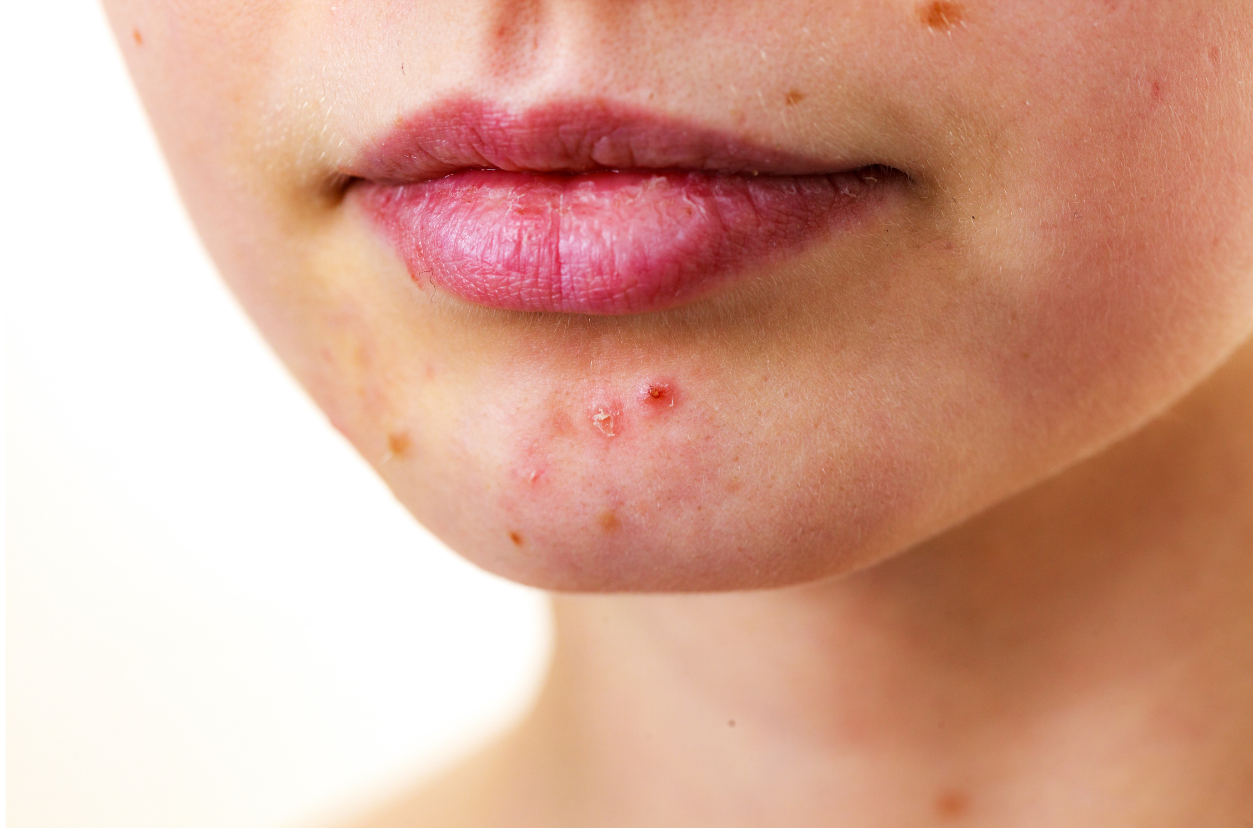How Magnesium Can Make Your Acne Better
•Posted on October 27 2021

outed as a miracle mineral, the benefits of magnesium have been studied and observed for decades.
But can it help reduce acne and improve skin health? What is the best magnesium supplement?
Here's the run-down on this amazing mineral and its link to skin health.
What is Magnesium?

Much more than a simple element on the periodic table, magnesium is the fourth most abundant mineral in our bodies.
Specifically, magnesium is a macromineral, meaning adults need a larger amount of these nutrients compared to others.
This mineral is responsible for over 300 unique cellular actions in the body, and no organ can go without it — and that includes your skin.
Magnesium helps regulate heart function, boosts immunity, and contributes to strong bones.
With an appropriate intake of magnesium, energy levels are improved, nerves function properly, and even migraine headaches are reduced.
Many people take a magnesium supplement to support their immune and cardiovascular systems.
And, keep in mind, magnesium helps to fight inflammation.
How Does Magnesium Affect Acne and Skin Health?

We all know that feeling of an inflamed, angry acne flare. This is where magnesium may play a crucial role in acne treatment.
The mineral's anti-inflammatory properties can help calm the inflammation associated with acne flares.
As an added bonus, a quality magnesium supplement can help regulate hormone levels, boosting cellular processes, and reduce cortisol levels (those pesky chemicals that increase oil production leading to breakouts).
What Affects Magnesium Levels in the Body?

Studies indicate over 70% of our population is deficient in magnesium.
Low fiber diets are a huge culprit, as is soft water (or consuming bottled water) that removes minerals such as magnesium from our drinking water.
Also, the soil we grow our crops in has been depleted of magnesium over the decades, and many foods once rich in the mineral, now only have trace amounts.
The levels of magnesium in your body fluctuate based on your dietary intake and what health conditions you may have.
If you suffer from diabetes, celiac disease, or battle chronic diarrhea, you may not be absorbing enough magnesium from your diet.
Likewise, those with alcoholism also tend to have lower than optimal magnesium levels.
Addressing Low Magnesium

To boost your intake of this miracle mineral, you must increase your intake of quality magnesium. The first way is to increase magnesium-rich foods in your diet like avocado, broccoli, squash, almonds, and even quality chocolate.
Switching from bottled water to "hard" tap water can also increase magnesium levels.
However, the easiest and most convenient way to bump up the magnesium in your system is with a quality magnesium supplement.
For acne treatment and skin health, an increase in magnesium can be achieved through an oral supplement or topical skin care products.
An increase in magnesium can benefit your overall health.
If you'd like to increase your magnesium intake to promote healthy skin by addressing problematic acne, we have a solution, as well.
We offer magnesium chloride USP, magnesium oil, magnesium chloride bath flakes and epsom salts — all excellent sources of high-quality magnesium that your body can use to fight inflammation and reduce cortisol levels, thereby improving your skin's health.
Shop all of these options below and be on your way to acne free skin from the inside out.
Comments
0 Comments
Leave a Comment